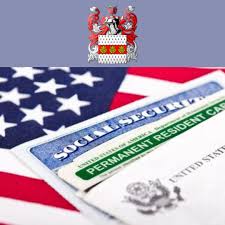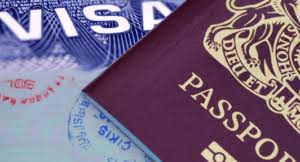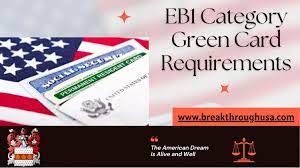
EB1 Lawyer Success Rates and Case Studies
Understanding Success Rates in EB1 Visa Applications The EB1 visa, often pursued by individuals with extraordinary abilities, has varying success rates depending primarily on the quality of the application and the background of the applicant. Expert EB1 lawyers specializing in this category have developed a nuanced understanding of what makes an application successful. Analyzing past approval statistics reveals that applicants with well-documented evidence of their extraordinary abilities in fields such as science, arts, education, business, or athletics tend to have higher approval rates. Role of Specialized Legal Assistance The complexity of EB1 applications necessitates professional legal guidance. Experienced EB1 lawyers play a crucial role in enhancing the success rate of these petitions. They provide strategic advice on how to effectively compile and present evidence that meets the strict criteria set by immigration authorities. Their expertise can significantly impact the outcome by avoiding common pitfalls and addressing potential red flags proactively. Case Study: Scientific Researcher Achieves Breakthrough Consider the case of Dr. Lin, a researcher in biotechnology whose EB1 petition was handled by an adept immigration lawyer specializing in extraordinary ability visas. Dr. Lin’s dossier included extensive documentation of her contributions

Timeline for the EB1 Process
Understanding the EB1 Category The EB1 visa category is designed for individuals who possess extraordinary ability in their field, whether it be in science, arts, education, business, or athletics. It also caters to outstanding professors and researchers as well as multinational executives and managers. Each of these subcategories has specific criteria that must be met to qualify for the visa. Initial Documentation and Filing The process begins with the filing of Form I-140, Petition for Alien Worker, by the employer on behalf of the candidate. This form requires extensive documentation that proves the applicant's extraordinary ability or qualifications. Evidence may include major awards like Nobel Prizes or Olympic medals, evidence of membership in associations in the field which demand outstanding achievement of their members, published material about you in professional publications, and more. Processing Times and USCIS Review After submission, the wait times can vary significantly based on several factors including service center workload and the applicant’s country of origin. The United States Citizenship and Immigration Services (USCIS) reviews each application thoroughly which can take from a few months up to a year or more. During this period, applicants may

Fees and Costs Associated with Hiring an EB1 Lawyer
Understanding Lawyer Fees When considering the pursuit of an EB1 visa, which is designated for individuals with extraordinary abilities, outstanding professors and researchers, or certain multinational executives and managers, engaging a knowledgeable immigration lawyer is crucial. The cost of hiring an EB1 lawyer can vary significantly based on several factors including the complexity of the case, the reputation and experience of the attorney, and geographical location. Typically, attorneys either charge a flat fee for handling the entire visa application process or bill by the hour. Initial Consultations The journey often begins with an initial consultation, which some lawyers may offer for free or charge a nominal fee. This session allows the attorney to evaluate your case's viability and provides you with a platform to understand the legal nuances involved in filing an EB1 visa application. During this consultation, fees and payment structures should be clearly discussed to avoid any surprises down the line. Additional Costs Beyond lawyer’s fees, there are additional costs associated with applying for an EB1 visa. These include filing fees required by U.S. Citizenship and Immigration Services (USCIS), which encompass charges for form processing and biometric services. Moreover,

Common Challenges in EB1 Applications
Understanding the Criteria A primary challenge in EB1 applications is meeting the stringent criteria set by the United States Citizenship and Immigration Services (USCIS). Applicants must demonstrate extraordinary ability, be an outstanding professor or researcher, or be a multinational executive or manager. Each category has specific requirements that can be difficult to interpret and satisfy. Documentation Overload Compiling the necessary documentation to prove extraordinary ability or exceptional qualifications can be overwhelming. Applicants often need to provide extensive evidence including awards, publications, letters of recommendation, and proof of employment. Ensuring that all documents are relevant, current, and properly formatted is crucial but challenging. Proving Extraordinary Ability For those applying under the extraordinary ability category, one of the most significant hurdles is proving that their accomplishments are at the very top of their field. This often involves not just national but international recognition. Applicants sometimes struggle to present their achievements as both substantial and unique. Recommendation Letters Gathering strong letters of recommendation is another common obstacle. These letters must come from credible sources who can attest to the applicant's contributions to their field convincingly. The quality and persuasiveness

Preparation of EB1 Petition
Understanding the EB1 Category The EB1 visa category is designed for individuals who possess extraordinary ability in the sciences, arts, education, business, or athletics through sustained national or international acclaim. It also includes outstanding professors and researchers as well as multinational executives and managers. Each of these subcategories has specific criteria that must be met by the petitioner to qualify under this prestigious classification. Gathering Documentation The preparation of an EB1 petition requires meticulous documentation to prove the applicant's extraordinary ability or qualification. For those demonstrating extraordinary ability in their field, evidence such as awards, media articles, peer reviews, and significant contributions to the field are crucial. Professors and researchers need to show published work, significant research contributions, and endorsements from peers. Multinational managers or executives must provide proof of their managerial position or authority in a company that operates both in their home country and the United States. Legal Representation and Strategy Enlisting an experienced EB1 lawyer can significantly influence the outcome of your petition. A skilled attorney will not only ensure that all documentation is correctly presented but will also guide you through complex legal strategies tailored to

Choosing the Right EB1 Lawyer
Understanding the EB1 Visa Category The EB1 visa is a preference category for United States employment-based permanent residency. It is intended for "priority workers" which include outstanding professors and researchers, multinational executives, and those with extraordinary abilities in arts, sciences, or business. Due to its prestigious nature, choosing the right EB1 lawyer is crucial as this person will guide you through complex legal landscapes and help solidify your path to working in the U.S. Evaluating Lawyer Credentials When beginning your search for an EB1 lawyer, start by assessing their professional background and credentials. An ideal candidate should not only have a robust understanding of immigration law but also specific experience with EB1 visas. Check their qualifications, track record in similar cases, and reviews from previous clients. This information can often be found on their firm’s website or through online legal directories. Specialization and Experience Given the complexity of immigration laws surrounding the EB1 category, it's advisable to work with a lawyer who specializes in immigration law rather than a general practitioner. A specialist will have deeper insights into potential pitfalls and unique requirements of an EB1 application. Experience matters significantly;

Role of an EB1 Lawyer
Understanding EB1 Visa Category An EB1 lawyer specializes in the United States immigration law, focusing particularly on employment-based first preference visas, commonly known as EB1 visas. These visas are designated for individuals who possess extraordinary abilities in their field, outstanding professors and researchers, or certain multinational executives and managers. The role of such a lawyer is critical in assessing whether a client qualifies under these stringent categories and guiding them through the complex application process. Navigating Legal Complexities The legal landscape surrounding EB1 visas is intricate and constantly evolving. An EB1 lawyer stays abreast of all current laws, regulations, and policies affecting this visa category. Their expertise includes understanding the nuances of legal precedents and applying them appropriately to benefit their client's case. This deep knowledge is essential for navigating the complexities of immigration law effectively. Case Preparation and Documentation One of the most crucial roles an EB1 lawyer plays is preparing a compelling case for their client. This involves gathering substantial evidence to prove that the client meets one of the specified criteria for receiving an EB1 visa. The documentation required is exhaustive and might include proof of awards,

How Can An Eb1 Lawyer Assist With The Application Process?
An EB1 lawyer can provide crucial assistance by evaluating eligibility criteria specific to individual circumstances, guiding through complex legal documentation and evidentiary requirements needed to establish exceptional qualifications according to USCIS standards. They also manage correspondence with immigration authorities and help navigate any issues that arise during the application process. Qualifying Criteria for EB1 Visa Overview of EB1 Visa Category The EB1 visa is a preference category for United States permanent residency, targeting individuals who demonstrate outstanding expertise in their field. This includes academics, researchers, multinational executives, managers, and those with exceptional abilities in the arts, sciences, or business. Recognized internationally for their achievements, candidates must fulfill specific criteria to qualify. Extraordinary Ability Applicants Applicants under the extraordinary ability subcategory must provide evidence that they have achieved national or international acclaim. This can be demonstrated through awards like Nobel Prizes or Olympic medals. Alternatively, documentation of at least three out of ten criteria such as published articles in major publications, significant contributions to their field, or exhibition of work at prestigious venues can be used. Outstanding Professors and Researchers This subcategory is tailored for professors and

What is an EB1 Visa?
Overview of EB1 Visa The EB1 visa is a category within the United States immigration system designed for individuals who possess extraordinary ability in their field, whether that be in the arts, sciences, education, business, or athletics. This visa also caters to outstanding professors and researchers as well as multinational executives and managers. Criteria for Eligibility To qualify for an EB1 visa, applicants must demonstrate extraordinary ability through sustained national or international acclaim. This can be evidenced by receiving major awards such as a Nobel Prize or by fulfilling at least three out of ten criteria set by the U.S. Citizenship and Immigration Services (USCIS), including published material about them, membership in associations requiring outstanding achievements, and significant contributions to their field. Application Process Applicants can self-petition if they are applying under the extraordinary ability subcategory, which means they do not need an employer to sponsor their application. However, those applying as outstanding professors or researchers, or as multinational executives and managers must have a job offer from a U.S. employer who will file a petition on their behalf. Advantages of the EB1 Visa One of